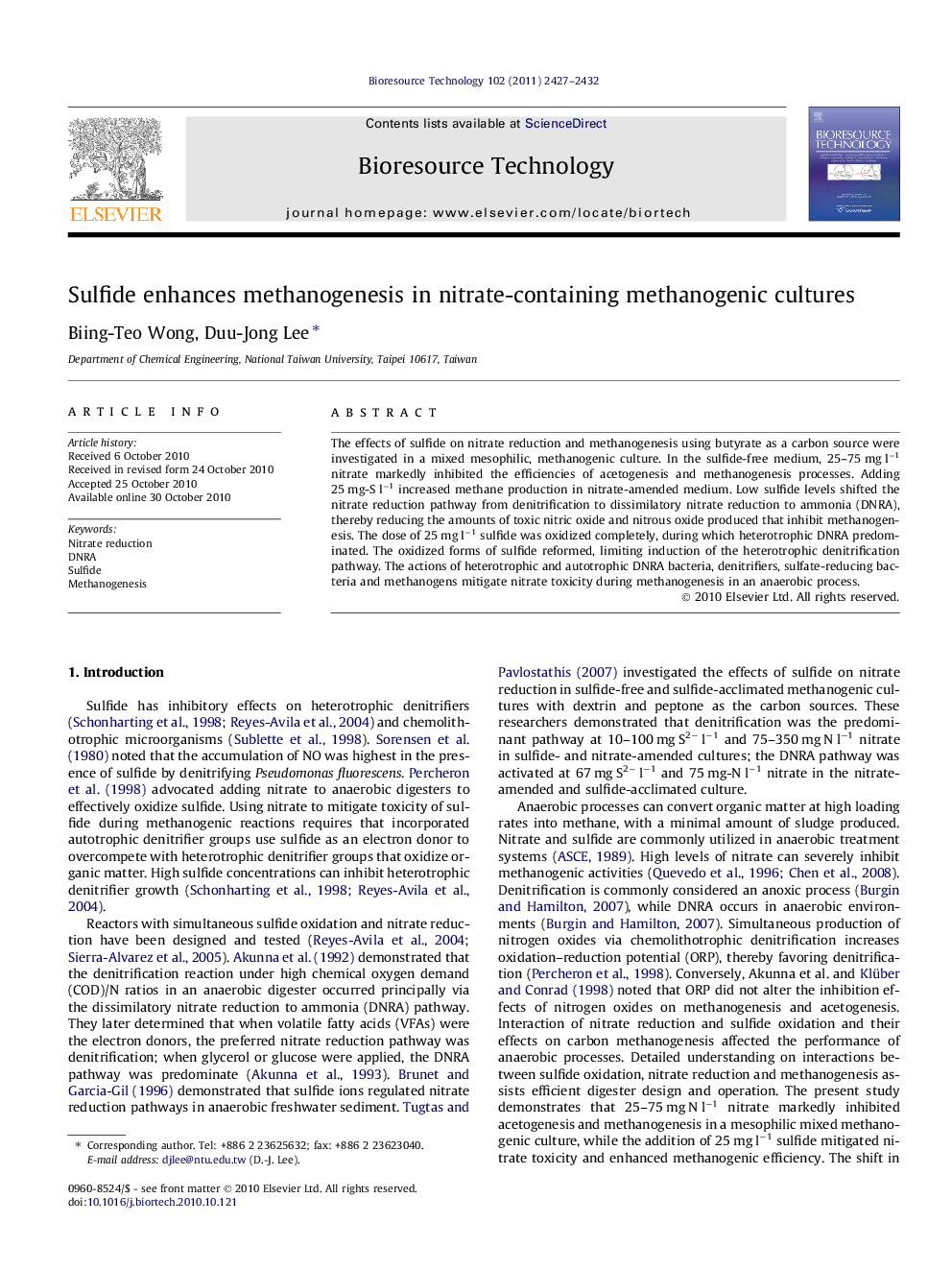| Article ID | Journal | Published Year | Pages | File Type |
|---|---|---|---|---|
| 10395359 | Bioresource Technology | 2011 | 6 Pages |
Abstract
The effects of sulfide on nitrate reduction and methanogenesis using butyrate as a carbon source were investigated in a mixed mesophilic, methanogenic culture. In the sulfide-free medium, 25-75 mg lâ1 nitrate markedly inhibited the efficiencies of acetogenesis and methanogenesis processes. Adding 25 mg-S lâ1 increased methane production in nitrate-amended medium. Low sulfide levels shifted the nitrate reduction pathway from denitrification to dissimilatory nitrate reduction to ammonia (DNRA), thereby reducing the amounts of toxic nitric oxide and nitrous oxide produced that inhibit methanogenesis. The dose of 25 mg lâ1 sulfide was oxidized completely, during which heterotrophic DNRA predominated. The oxidized forms of sulfide reformed, limiting induction of the heterotrophic denitrification pathway. The actions of heterotrophic and autotrophic DNRA bacteria, denitrifiers, sulfate-reducing bacteria and methanogens mitigate nitrate toxicity during methanogenesis in an anaerobic process.
Related Topics
Physical Sciences and Engineering
Chemical Engineering
Process Chemistry and Technology
Authors
Biing-Teo Wong, Duu-Jong Lee,
